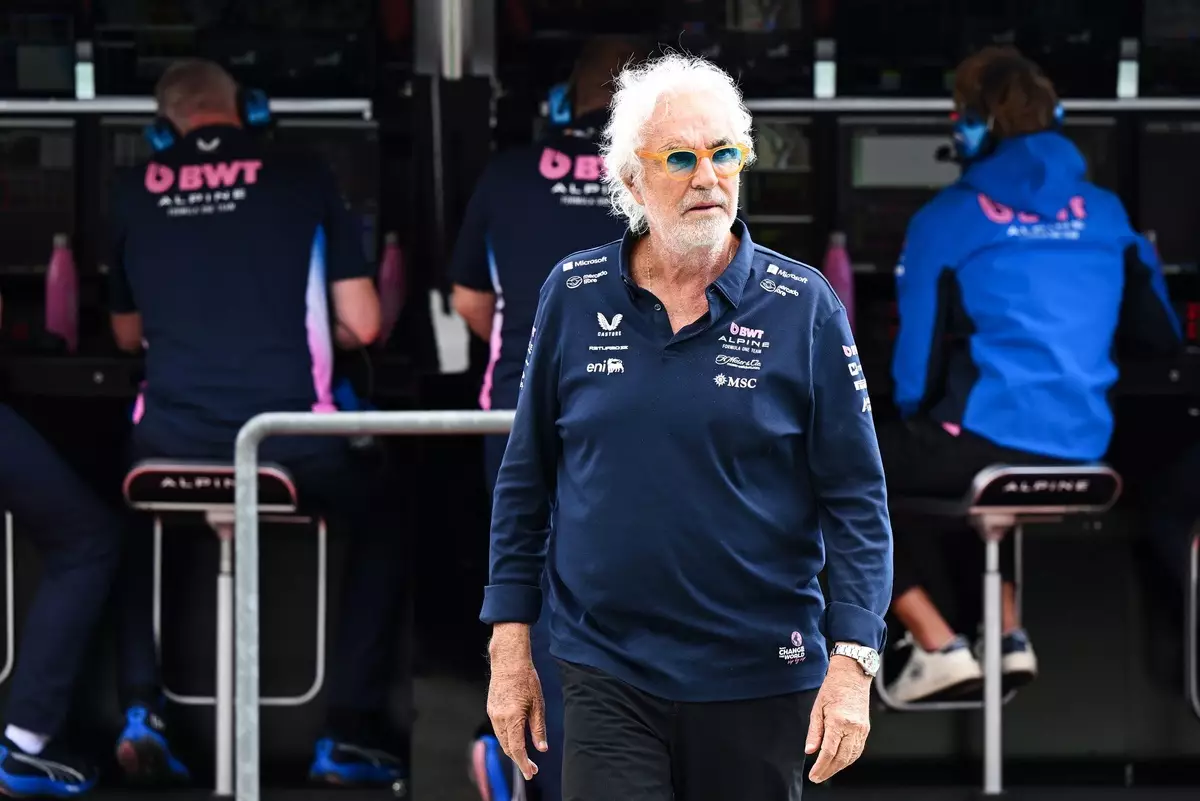Flavio Briatore’s re-emergence in the Formula 1 world has reignited fervor and debate among fans and pundits alike. The Italian, known as much for his triumphs as for his controversies, has made a definitive return to Alpine as an executive advisor. As a veteran in the sport, Briatore is no stranger to the insatiable desire for victory and competitiveness that drives elite racing teams. His latest assertions leave little room for interpretation: Alpine must prepare to be a leading contender in the upcoming 2026 season. Briatore is not only optimistic but unequivocal—excuses for underperformance will no longer be tolerated.
Alpine, having had a challenging trajectory in the early stages of 2025, has seen its fair share of turbulence. With a mere seven points scored and pivotal changes in team personnel, the atmosphere within the paddock is charged with urgency. After parting ways with driver Jack Doohan, Briatore is clear that changes need to breathe fresh life into the team. His determination suggests that every setback must translate into motivation for future success.
2026: A New Era of Competitiveness
In his conversations with media, Briatore has made it evident that he anticipates a dramatic shift in the competitive landscape of Formula 1 with the regulatory changes planned for 2026. His guarantees about Alpine’s potential future victories resonate with a mixture of optimism and the pressure that comes with leadership in such a high-stakes environment. “In 2026, there will be no excuses,” he declared, emphasizing the need to harness the advantages of the new regulations.
Briatore’s self-assurance as he maps out the path to glory for Alpine underscores a significant shift in the Formula 1 paradigm. Teams will need to interpret rule changes innovatively, and those that can navigate this complex landscape successfully will gain the upper hand. For Briatore, the transition to Mercedes power is a decisive step toward leveling the playing field, as it leverages the best available technology.
The Mercedes Transition: A Calculated Risk
Critics of Briatore suggest that switching to Mercedes power could be fraught with challenges. However, the former team principal insists that this was a requisite move to break away from a cycle of disadvantage that has hampered Alpine’s performance in recent years. “Choosing to switch to Mercedes power was a very difficult decision, but in this sport, to win, you need to have the same tools as the others,” he stated. This admission reflects a deeper understanding of the sport’s dynamics—victory is often dictated by the machines driven by extraordinary talent.
Briatore’s candid remarks draw attention to the current competitive environment in Formula 1, where power units can make or break a season. The implications of aligning with Mercedes extend beyond merely accessing superior technology; they denote a strategic alliance that could bolster Alpine’s ambition to be contenders, not just competitors. Briatore’s acknowledgment of the historical disadvantages faced by the team before this strategic pivot speaks volumes about his pragmatism and vision.
A Pioneering Leadership Approach
With the departure of Oliver Oakes, Briatore finds himself at the helm, albeit in an unofficial capacity. He has swiftly taken on operational responsibilities, relieving the team of bottlenecks that may have hindered its progress. His resolve to be “100% committed” illustrates his readiness to tackle the intricate challenges that lie ahead. Briatore’s passion for the sport is undiminished, and his approach reflects a blend of hands-on leadership and strategic oversight.
While some observers may express skepticism about Briatore’s potential as a de facto leader of Alpine, it’s impossible to discount his impressive track record. His prior success with the Enstone team, which yielded three constructors’ titles, showcases his capability to inspire excellence among his drivers and engineers. His past also comes with a hint of controversy, yet it is that very complexity that makes his narrative compelling. His tenacity and drive may indeed serve as the catalyst for Alpine’s rise in the coming seasons.
Briatore has firmly stated that he is ready to take on the increased workload, likening his role to that of a seasoned captain navigating through turbulent waters. His confidence exudes a sense of purpose that both challenges and empowers his team. For him, the absence of an official team principal title is a mere technicality; his influence and leadership resonate loudly within the organization, positioning Alpine as a team ready to awaken its potential. As the landscape of Formula 1 evolves, so too must the teams within it, and under Briatore’s guidance, Alpine is poised for remarkable transformation.

